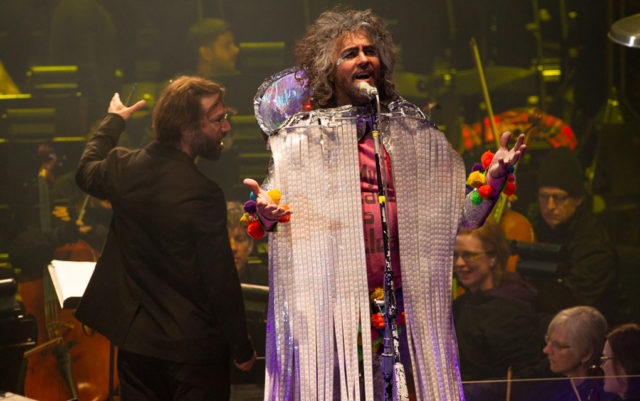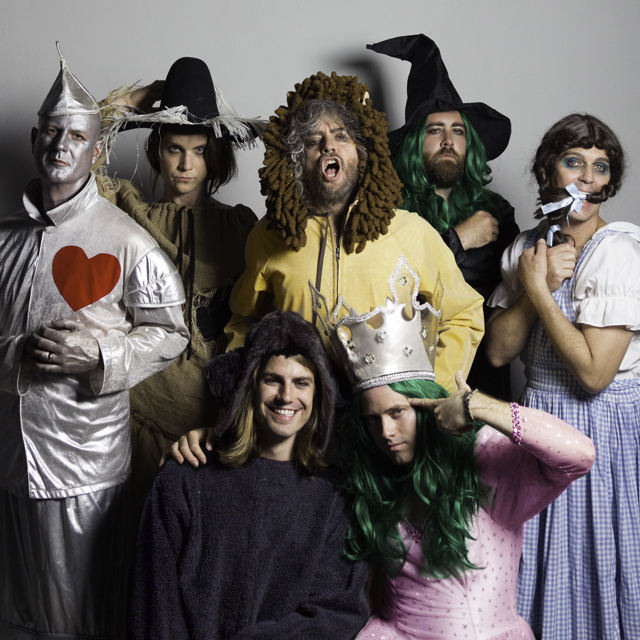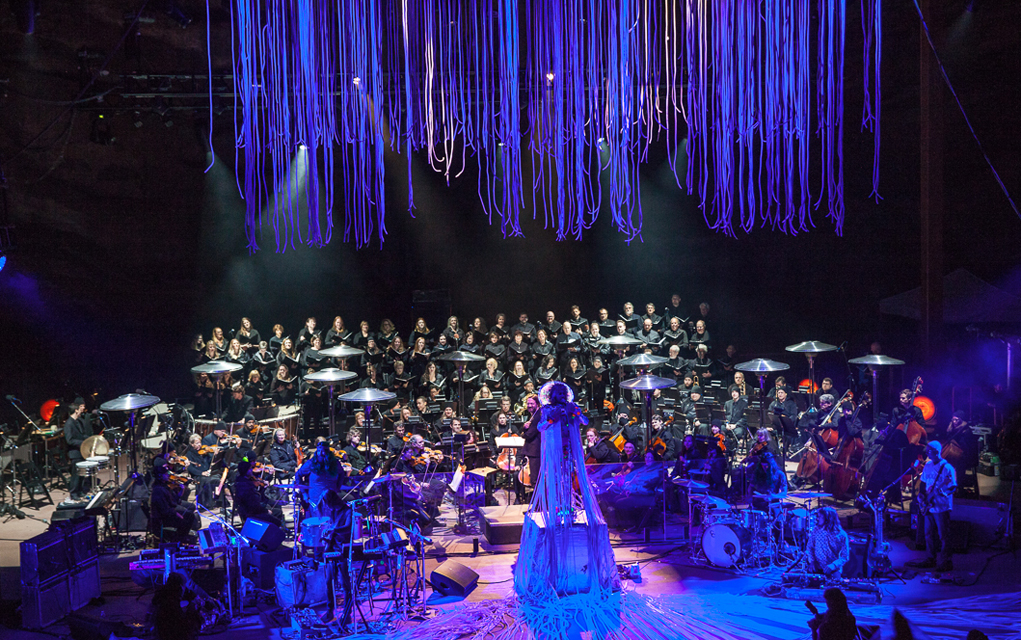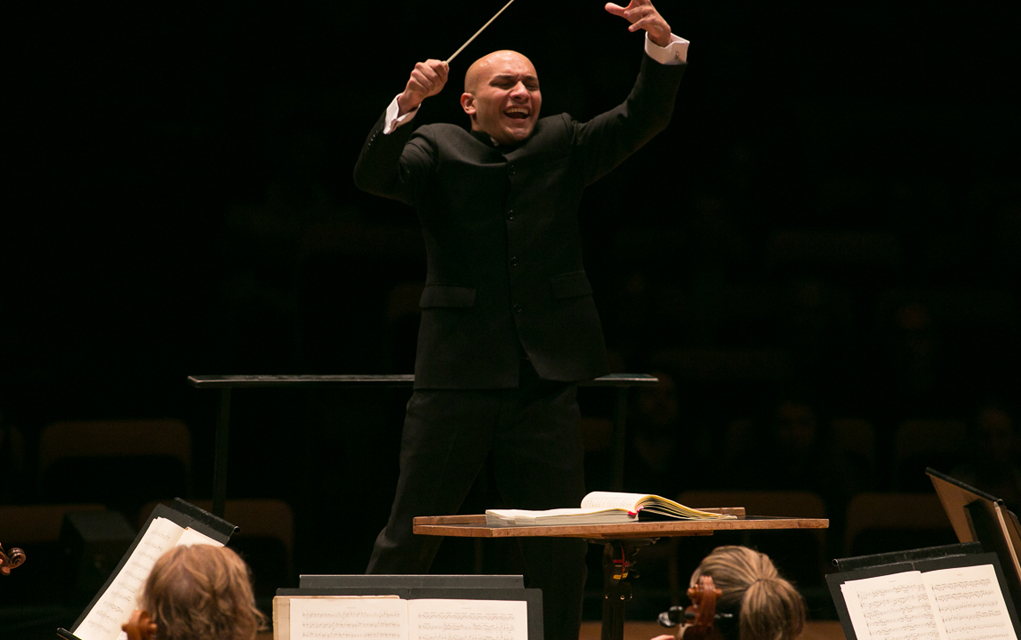
In 1969, thousands of people crammed into the Royal Albert Hall in London to watch Deep Purple perform their Concerto for Group and Orchestra with the Royal Philharmonic Orchestra. The band’s long hair and unbuttoned shirts were juxtaposed with the tux-wearing and neatly groomed orchestra players. The concerto begins almost as a battle of the bands, the orchestra pitted against Deep Purple, competing for preeminence of the musical realms. By the end, the two integrate seamlessly, unified in both sound and performance.
The crowd was likewise bifurcated. Some observers sat still in their seats, heads maybe cocked to one side or the other, a few lit cigarettes dotted the crowd. Others, however, were on their feet dancing, headbanging to the combination of electric guitars and cellos, synthesizers and horns, a classic rock drum kit and orchestral percussion. At the end, the entire audience gave a standing ovation, clapping, cheering and waving British flags as Jon Lord of Deep Purple stood to shake conductor Malcom Arnold’s hand, a formality not often seen at rock concerts.
It’s the performance credited with starting the trend of classical orchestras collaborating with contemporary rock bands — from Roger Waters playing with the The Military Orchestra of the Soviet Army on The Wall — Live in Berlin to Arcade Fire jamming with the Manchester Orchestra at Summerfest and everything in between. It’s the genesis of uniting seemingly disparate groups, audiences and musicians alike, an effort to bring new audiences into the symphony, to preserve and appreciate a classical art form while remaining relevant.
“All orchestras really, all around the world, have been quite smart about this idea that if you get a new, younger audience in there, and have their minds blown by this sound, and it’s really mind-blowing, it’s a great experience,” says Wayne Coyne, frontman of The Flaming Lips, who are set to revisit their 2016 Red Rocks performance of The Soft Bulletin with the Colorado Symphony Feb. 22 at the Boettcher Concert Hall in celebration of the album’s 20th anniversary. It’s “us playing to a slightly different audience, playing something in a slightly different atmosphere, but also bringing something different to the symphony.”
It’s hard for Coyne to believe what’s often described as the band’s seminal record was released two decades ago. The band has been playing and recording together since 1983, and time seems almost irrelevant to him now.
“We don’t really remember how we made it, but we know we did,” Coyne says about the album. Created over the few years preceding its 1999 release, The Soft Bulletin utilized emerging technology to create a record rich in orchestration without the use of an actual orchestra.
The entire album displays dense instrumentation, distorted drumbeats and piano riffs with overlays of synthesized string parts and vocal harmonies. The middle track, “The Observer,” is perhaps the pinnacle of such electronic orchestration, a sweeping instrumental piece with an angelic chorus of heavenly voices.
“We’re not symphonic composers and all that, but in making it our own way, it sounds like that,” Coyne says. “We just went about it like we knew what we were doing, but we don’t really know what we’re doing.”

“We’re the sun and we’re the clouds but if you want to see the sunset, you can’t be the sun and clouds,” he expounds a few minutes later. “You have to be standing away from it. And I think it’s a little bit like that, this stuff that we made, when you stand away from it, it does have this great effect, but when you’re in the middle of making it, you don’t know what it is.”
When The Soft Bulletin first came out, Coyne says the band was excited by the new material, playing to audiences who may not have had any idea what to expect, but nevertheless were accustomed to the Lips’ experimental and out-of-the-box tendencies. As time went on, however, it became clear the album had broader appeal than the group originally realized.
“After a couple of years of playing it, we noticed it was attracting more normal people,” Coyne says. “It wouldn’t be our typical Flaming Lips, weirdo, freak-flag-flying people in the audience. And that part of it was kind of a new experience for us.”
While the band has played songs from the album, or the whole album at once, for years, sometimes even projecting images of the great American conductor and composer Leonard Bernstein while doing so, it wasn’t until 2016, at Red Rocks, that they played it backed by a full symphony orchestra.
“The Soft Bulletin album, if you give it a listen, there’s portions of the record where there’s clearly a chorus involved, there’s portions of the album where you can hear its horns, and strings and harp,” says Anthony Pierce, chief artistic officer of the Colorado Symphony. “I just knew they (The Flaming Lips) would lend themselves well to this.”
The Colorado Symphony has been working with contemporary musicians for years, performing and recording with the likes of Denver’s own DeVotchka and folk icon Gregory Alan Isakov, among others. So when Pierce got longtime Lips manager Scott Booker’s business card, he saw it as an opportunity to create something spectacular with the band. He enlisted the help of Todd Hagerman from DeVotchka to write the orchestral charts and the two flew down to the Lips’ homebase in Oklahoma City for a day. They met at Academy of Contemporary Music at the University of Central Oklahoma, which was founded a decade ago by Booker and the Lips’ multi-instrumentalist Steven Drozd.

performed their seminal album ‘The Soft Bulletin’ with the Colorado Symphony at Red Rocks. Brandon Marshall
“We kind of just played through the record on the piano, Steven just laid out all the chord progressions. He’s one of these guys who can get at the keyboard and play anything he wants. It blows your mind how phenomenally talented this guy is,” Pierce says. “He scribbled out the harmonic progression for each song on a piece of paper … because I don’t know that anyone had really transcribed The Soft Bulletin.”
Hagerman then took that and wrote the music for the Colorado Symphony, some 70 members playing music usually performed live solely by the seven members of the Lips, plus the Colorado Symphony Chorus, a group of 180 or so volunteer singers from across the state.
“We need to show people new applications of what we can do,” Pierce says. “And this is one of the mechanisms to do that.”
Coyne defers a lot of the success of the show to the expertise of the symphony orchestra musicians. “It’s a lot of intricate, dynamic music and every instrument up there matters,” he says. “I’m not really a musician, I’m just making up my own stuff and hoping it works.”
It rained the night of the 2016 Red Rocks show, as guest conductor Andre de Ridder led the symphony through the entirety of The Soft Bulletin, plus a few encores of other Lips hits like “Yoshimi Battles The Pink Robots, Pt. 1” and “Do You Realize??” Coyne stood on a tall podium adorned in a robe of lights, beach balls bouncing through the crowd, blasting confetti cannons to finish out the show. The entire night was recorded, and the live album is anticipated later this year, giving Coyne and the Lips yet another reason to revisit The Soft Bulletin and play with the Colorado Symphony again, this time with conductor Christopher Dragon.

“We would have always been drawn to stuff by Stravinsky or the famous piece from 2001: A Space Odyssey. Any musician hears those and you go, ‘Oh man, that’s just too great.’ But it’s quite a leap to make music like that,” Coyne says. “I think it was part of our desire to make emotional music that has that kind of impact, that kind of drama to it.”
With The Soft Bulletin, the Lips achieved just that. Not only in its electronic orchestration, but with Coyne’s lyrics, full of anguish, existential dread and grief, rounded out with the Lips’ quintessential ethereal optimism.
“I think it’s saying life is brutal but it’s also beautiful,” Coyne says. “To be only optimistic and not understand the brutality and the pain in the world, that doesn’t really work. And I think that’s what The Soft Bulletin is saying, that pain, and those dilemmas, and how ugly and how unfixable some things are and yet it still sings about the sun and things that are going to work and things that are going to make you happy.”
Even now, he says, just as much as when the record came out, the band often runs into people who express deep emotional connection to the songs, profound experiences tied to the music. It’s what’s brought people to live performances, whether classical or rock, for hundreds of years.
In 1969, when Deep Purple and the Royal Philharmonic collaborated to create their genre-bending spectacle Concerto for Group and Orchestra, British TV later broadcast it as “The Best of Both Worlds.” The same sense of fusion serves The Soft Bulletin well, decades after it was first released.
“It’s mysterious in a wonderful, wonderful way,” Coyne says. “It’s a long, weird, but wonderful thing.”
ON THE BILL: The Flaming Lips perform ‘The Soft Bulletin’ with the Colorado Symphony. 7:30 p.m. Friday, Feb. 22, Boettcher Concert Hall, 1000 14th St., Denver, coloradosymphony.org/tickets.














